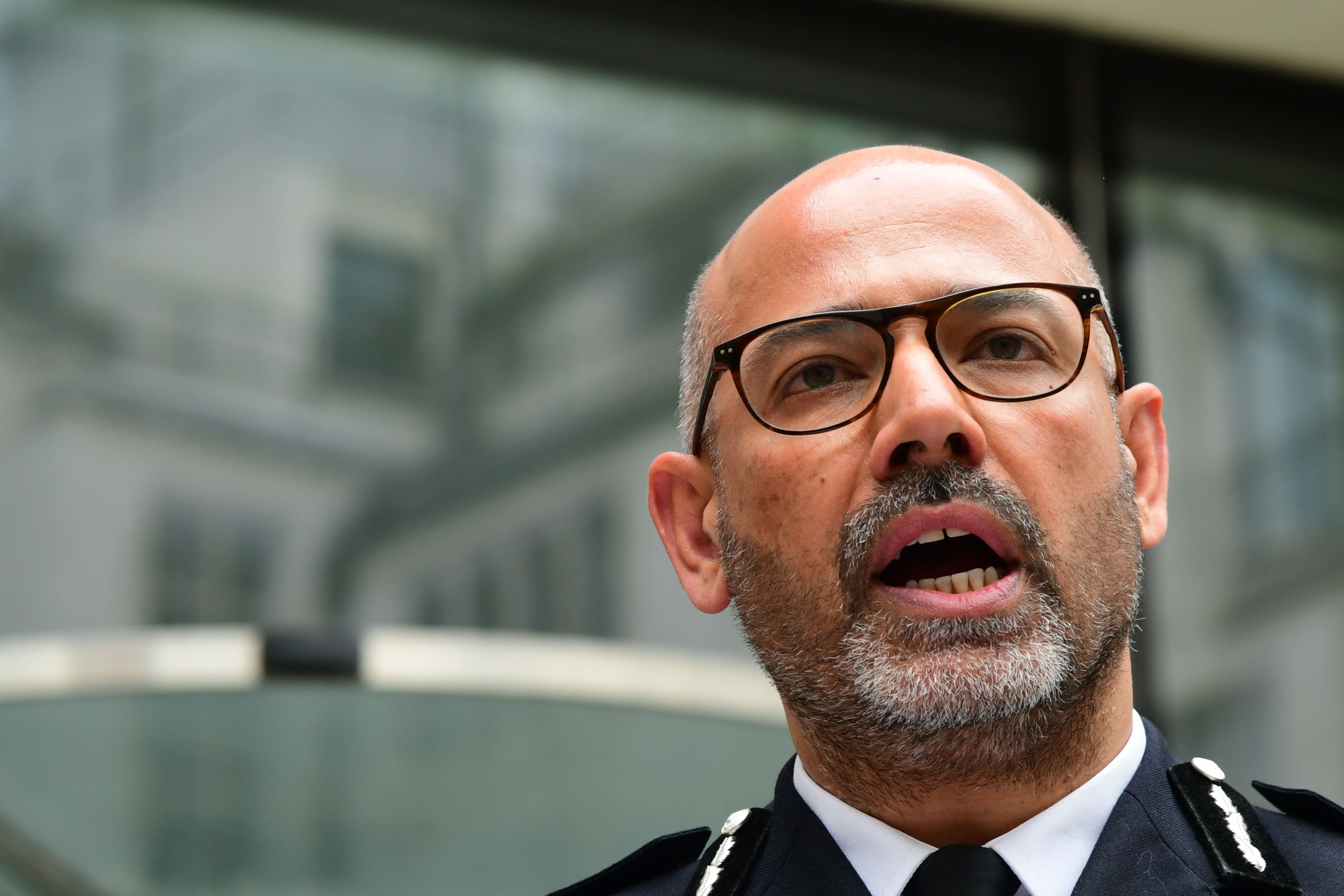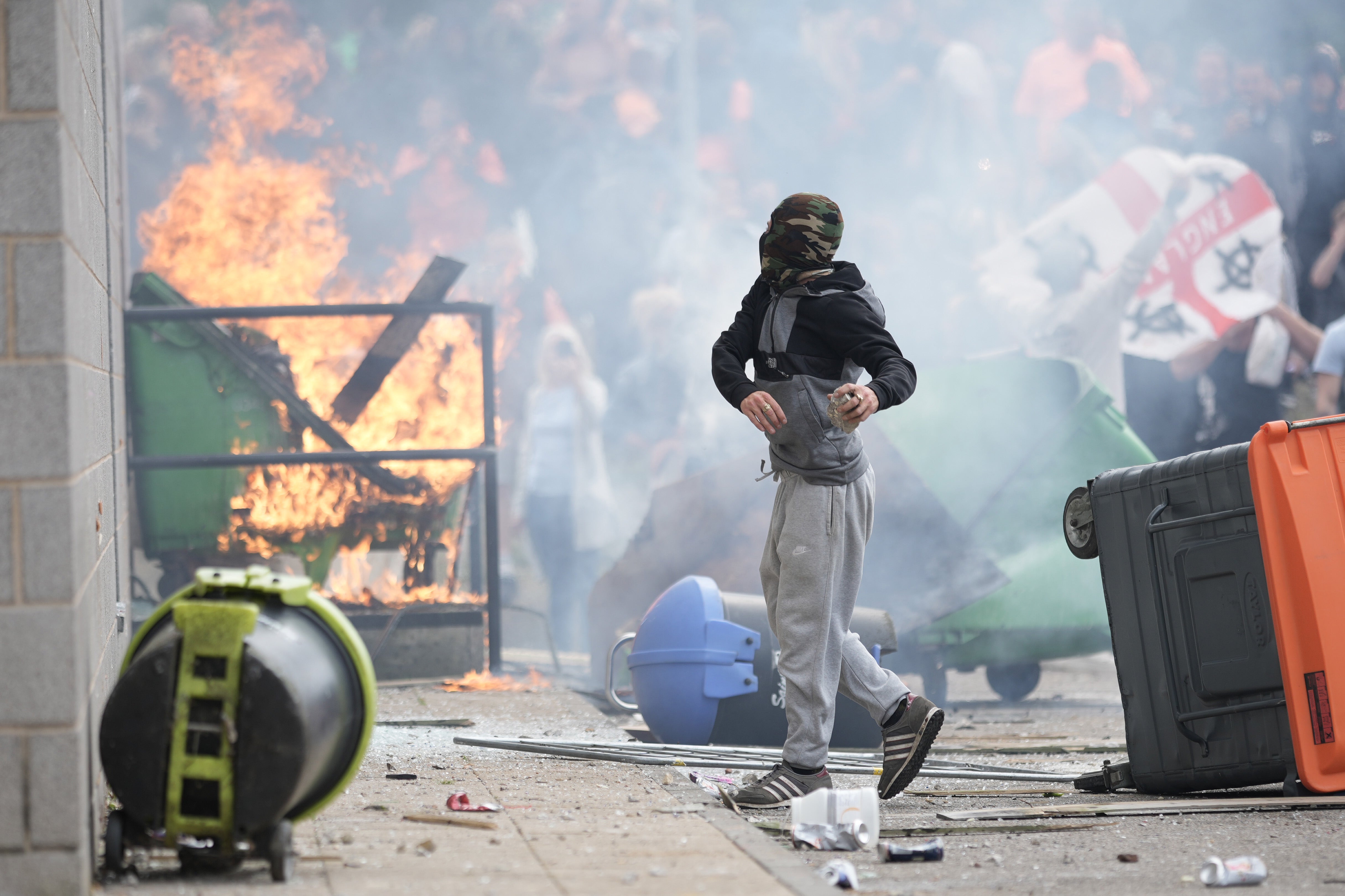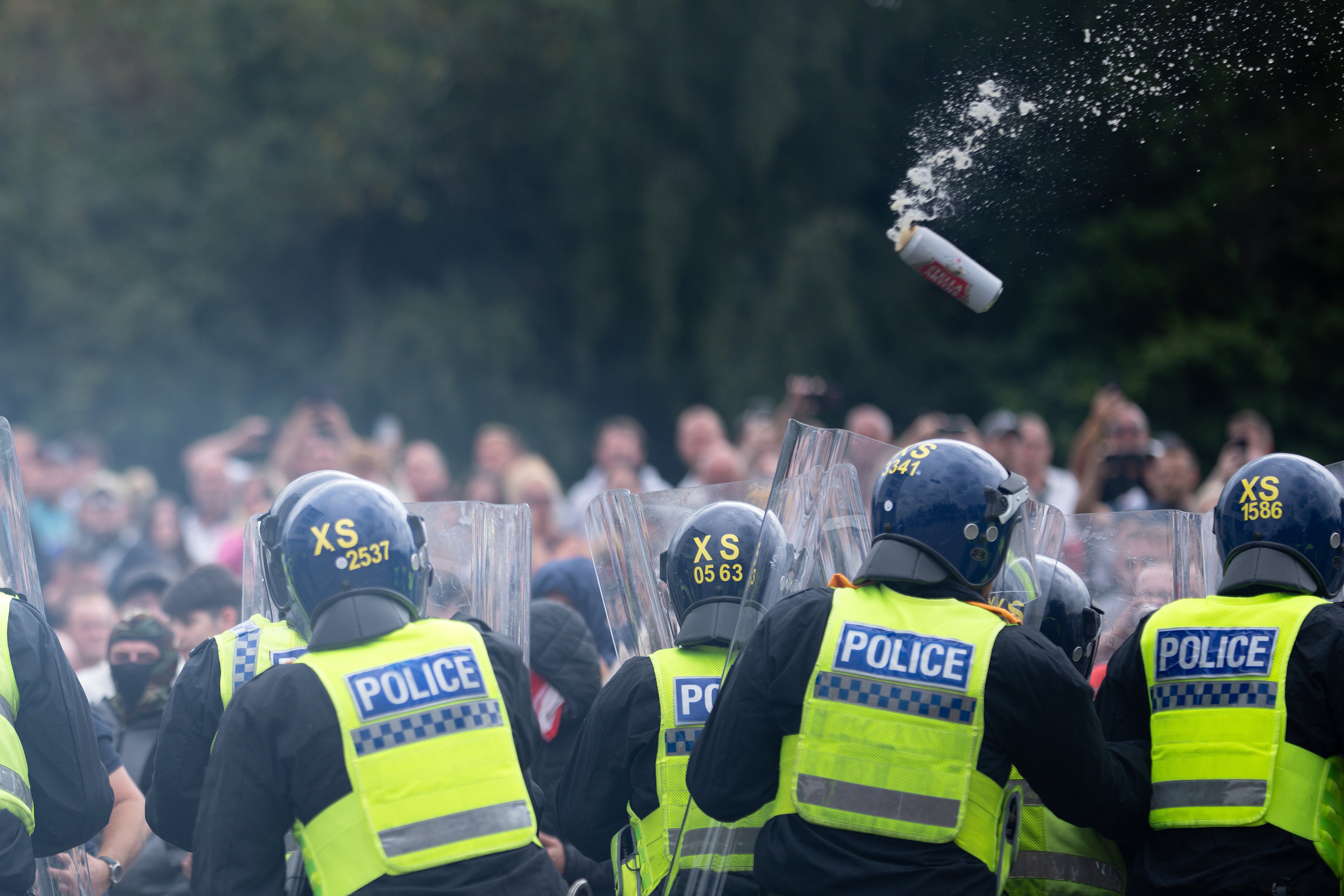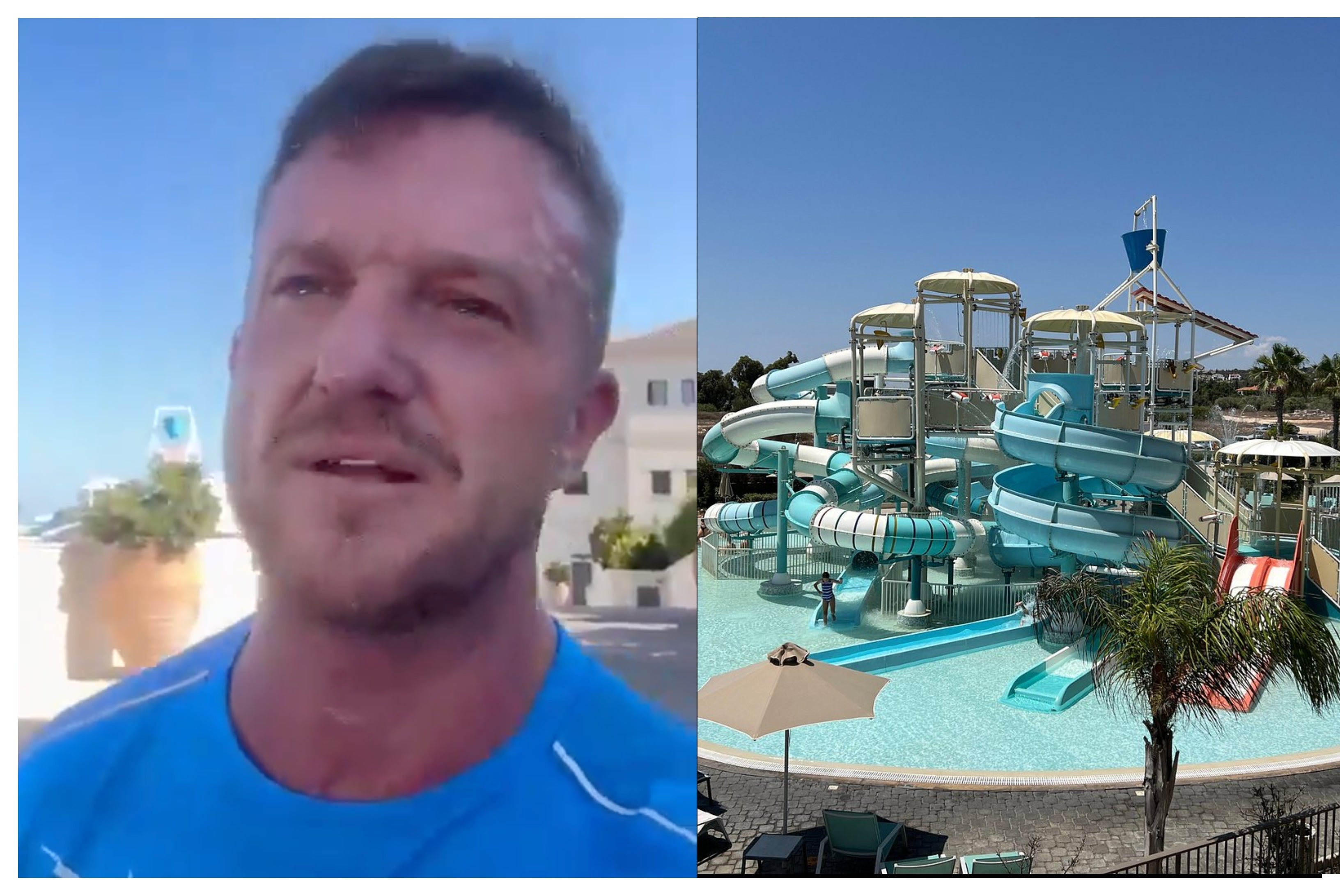Worst far-right violence should be treated as terrorism, former police chief says
Former counter-terror chief Neil Basu said a bid to torch an asylum seeker hotel was an ‘attempt at a modern-day lynching’

The worst of the far-right violence seen during riots across the country should be treated as terrorism, Britain’s former head of counter-terrorism has warned.
Neil Basu said attempts to set asylum seeker accommodation ablaze in Rotherham was “nothing short of an attempt at a modern-day lynching” as he hit-out at the racially motivated attacks.
The shocking scenes saw an angry far-right mob target the town’s Holiday Inn Express on Saturday, pelting it with rocks and debris while asylum seekers were inside.
Men in balaclavas managed to push their way through a shattered window before attempting to torch the building with some heard chanting: “Get them out.”

It comes as police battle a week of action by far-right groups, with almost 400 arrests so far following clashes across the country after misinformation spread over the stabbing of three girls in Southport.
“Trying to set ablaze a building with people inside, whom you have made clear you detest, is an act of violence against people and property with a racial cause designed to intimidate a section of the public – be it Muslims or asylum seekers,” Mr Basu told the Guardian.
“Not only does it fit the definition of terrorism, it is terrorism. It’s nothing short of an attempt at a modern-day lynching and the people who did it should be facing life imprisonment, not a five-year sentence for violent disorder.”
Mr Basu, who held the top counter-terror job between 2018 and 2021, said some of the violence during riots has “crossed the line into terrorism”, adding: “I hope my successors are looking at that very closely.”
He told the BBC: “I think we have seen serious acts of violence designed to cause terror to a section of our community.”

The Terrorism Act 2000 defines terrorism as the threat or use of serious violence against a person, serious damage to property, endangering life or creating a serious risk to the public or section of the public, “for the purpose of advancing a political, religious, racial or ideological cause”.
A number of extreme right wing groups have been designated as proscribed terrorist groups in recent years amid a rise in far-right terror, including National Action, Sonnenkrieg Division and The Base.
It is not yet clear if police are treating any of the crimes linked to the riots as terror-related.
However a CPS spokesman told The Independent prosecutors will look at “all relevant offences” and apply the full force of the law.
The spokesman added: “We can’t speculate about what people will be charged with but we’ll look at all the relevant offences and won’t hesitate to apply the full force of the law if that’s where the evidence leads.”
Mr Basu also called for gaps in the law around far-right influencers to be addressed to stop people with large followings like Tommy Robinson from “glorifying and creating violence from his sunbed in the Mediterranean”.

It comes after it emerged Robinson, whose real name is Stephen Yaxley-Lennon, had been posting a series of inflammatory messages on X, formerly Twitter, from a £400-a night luxury resort in Cyprus.
“Yaxley-Lennon knows well he’s in the full glare of policing, counter-terrorism policing, and the security service,” Mr Basu told the BBC.
Meanwhile ministers met social media giants this week amid fears that misinformation and posts to online forums are fuelling violent disorder.
Technology secretary Peter Kyle confirmed he had met representatives from TikTok, Facebook’s parent company Meta, Google and X “to make clear their responsibility to continue to work with us to stop the spread of hateful misinformation and incitement”.
